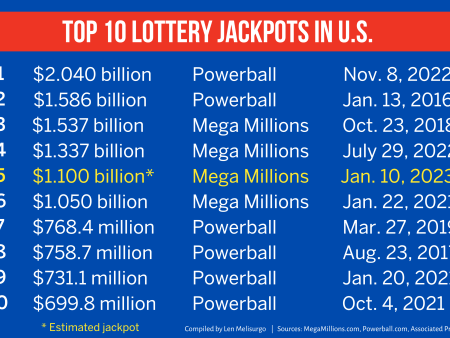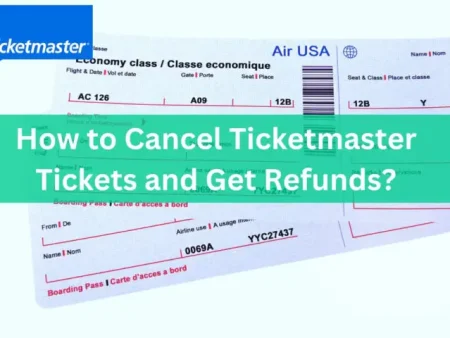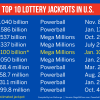Explore the pros and cons of single ticket vs. bundle purchases, covering cost, convenience, flexibility, risk, and value to help you make informed buying decisions. Top Ten Lottery
Understanding the Difference Between Single Ticket and Bundle Purchases: A Comprehensive Guide
Understanding the Difference Between Single Ticket and Bundle Purchases: A Comprehensive Guide
In today’s fast-paced consumer landscape, making informed purchasing decisions is more important than ever. Whether you’re buying tickets for an entertainment event, a travel adventure, or a software package, understanding your options can significantly impact your experience and budget. One common dilemma that many face is choosing between single ticket and bundle purchases. So, what is the difference between single ticket and bundle purchases? This comprehensive guide aims to break down the nuances of each option, helping you discern which choice best suits your needs. From cost-effectiveness to convenience and flexibility, we will explore all the factors you need to consider to make a well-informed decision.
When evaluating cost, single ticket and bundle purchases each have their own financial implications. Single tickets allow you to pay for only what you need at the moment, making it a suitable option for those with tight budgets or who require flexibility. For instance, if you’re attending a one-time event or need a specific software feature, a single ticket or standalone purchase can save you from unnecessary expenses.
On the other hand, bundle purchases often offer significant discounts compared to buying items individually. This option is ideal for frequent users or those looking to access multiple services or products over an extended period. For example, buying a season pass for a sports team or a software suite that includes various applications can result in substantial savings. Bundles often come with added perks such as exclusive content or priority access, providing more value for your money.
In summary, the choice between single ticket and bundle purchases hinges on your specific needs and usage patterns. If you seek cost-effectiveness and plan to use multiple services or products, bundles offer great value. However, if flexibility and minimal upfront costs are your priorities, single tickets may be the better choice.
When it comes to convenience and time-saving benefits, bundle purchases often come out on top. With a single transaction, you can gain access to multiple products or services, eliminating the need to make multiple purchases. This streamlined process not only saves time but also reduces the hassle of managing multiple receipts or accounts. For instance, purchasing a software suite means you get all the essential tools you need in one go, rather than downloading and installing each program separately.
Moreover, bundles often come with integrated features that work seamlessly together, enhancing your overall experience. Imagine subscribing to an entertainment package that includes movies, TV shows, and music—all accessible through a single platform. This unified approach means less time spent switching between services and more time enjoying your content. Additionally, many bundles offer automatic updates and customer support for all included items, further simplifying your life.
In contrast, single ticket purchases require individual transactions for each product or service, which can be time-consuming and cumbersome. While this option offers flexibility and allows for more personalized choices, it often lacks the integrated convenience that bundles provide. Therefore, if you value efficiency and ease of use, opting for bundle purchases can significantly enhance your experience.
When it comes to flexibility and customization, single ticket purchases often offer a distinct advantage. Opting for individual tickets or standalone products allows you to tailor your choices precisely to your needs. For instance, if you’re only interested in attending one specific concert or need a particular feature in a software application, single ticket purchases let you pick exactly what you want without any extras. This level of customization is particularly beneficial if you have unique preferences or specific requirements, ensuring that you only pay for what you truly need.
On the other hand, bundle purchases can sometimes lack the flexibility that single tickets provide. While bundles usually offer great value and convenience, they often come with preset options that may include services or products you don’t necessarily need. However, some modern bundles have started to address this issue by allowing users to customize their packages to a certain extent. For example, some subscription services now offer “build-your-own” bundles where you can choose from a range of options to create a package that best fits your needs.
In summary, if having the freedom to customize your purchases is a priority for you, single ticket purchases are the way to go. They provide the flexibility to pick and choose exactly what you want, ensuring a more personalized experience. However, for those who seek a balanced mix of value and convenience with some degree of customization, modern bundle options could also be worth considering.
When evaluating risk and commitment factors, single ticket purchases offer a lower level of commitment, making them an ideal choice for those who prefer flexibility and minimal risk. With single tickets, you can make one-time purchases without long-term obligations. This is particularly advantageous if you’re unsure about how often you’ll use a service or attend an event. For instance, buying a single concert ticket allows you to enjoy the experience without committing to an entire season pass. This reduced level of commitment minimizes financial risk and provides peace of mind, knowing you are not locked into a long-term contract.
Conversely, bundle purchases often require a higher level of commitment, which can pose a risk if your needs or circumstances change. Bundles are typically offered at discounted rates in exchange for a longer-term commitment, such as annual subscriptions or multi-event passes. While this can lead to significant savings, it also means you’re financially tied to the bundle even if your interest wanes or your situation changes. For example, purchasing a yearly software subscription might save money upfront but could become a sunk cost if you no longer need all the included features.
In summary, the choice between single ticket and bundle purchases largely depends on your willingness to commit and the level of risk you’re comfortable with. Single tickets offer flexibility and reduced financial risk, making them suitable for those who prefer short-term commitments. On the other hand, bundles provide cost savings but require a higher level of commitment, posing a potential risk if your needs change over time. Carefully weighing these factors can help you make an informed decision that aligns with your lifestyle and financial goals.
When considering value for money and added perks, bundle purchases often provide substantial advantages. Bundles typically offer significant discounts compared to buying items individually, making them a cost-effective choice for those looking to maximize their budget. For instance, purchasing a software suite that includes multiple applications can be far cheaper than buying each program separately. Additionally, bundles frequently come with exclusive perks such as early access, premium content, or enhanced customer support, which further enhances their overall value.
On the other hand, single ticket purchases allow you to pay only for what you need, offering great value if your requirements are specific and limited. This approach ensures that you are not spending money on unnecessary features or services, making it an economical choice for one-time needs or occasional use. While single tickets may not come with the same level of added perks as bundles, they provide the flexibility to tailor your purchases precisely to your needs without any excess.
In summary, both single ticket and bundle purchases offer distinct value propositions. Bundles deliver excellent value for money through discounts and added perks, making them ideal for frequent users or those with diverse needs. Conversely, single tickets provide a cost-effective solution for specific requirements, ensuring you only pay for what you truly need. Understanding these differences can help you make an informed decision that aligns with your personal or professional goals.
Single tickets are particularly suitable for scenarios where flexibility and specificity are paramount. For example, if you’re attending a one-time event like a concert or a sports game, a single ticket allows you to enjoy the experience without committing to future events. This flexibility is invaluable for individuals with unpredictable schedules or those who simply want to sample different activities without being tied down. In essence, single tickets offer a “pay-as-you-go” model that minimizes financial risk and ensures you only invest in what you truly want.
Another scenario where single tickets shine is when you have highly specific needs. Imagine needing just one feature from a software application rather than the entire suite. In such cases, purchasing a single license for that particular feature can be more cost-effective and efficient. This approach ensures that you are not paying for unnecessary extras, making it an ideal choice for those who prefer a tailored solution.
Lastly, single tickets are perfect for first-time users or those looking to test the waters before making a larger commitment. Whether it’s trying out a yoga class, attending a workshop, or experimenting with new software, single tickets provide an excellent opportunity to gauge your interest and satisfaction without a long-term obligation. This low-risk option allows you to make more informed decisions about future investments, ensuring that your money is well spent.
Bundle purchases offer more advantages in scenarios where you need multiple products or services frequently, or over a longer period. For instance, if you’re a software developer requiring various tools like a code editor, a design application, and a project management tool, buying a software suite can save you significant money compared to purchasing each tool separately. Bundles often come with attractive discounts and additional perks like premium features or customer support, making them a financially savvy choice for those with diverse and ongoing needs.
Another scenario where bundle purchases shine is in entertainment and travel. If you’re an avid concert-goer or sports fan, season tickets or multi-event passes offer greater value than buying individual tickets for each event. Similarly, travel bundles that include flights, hotels, and car rentals can provide substantial savings and added convenience, eliminating the hassle of booking each component separately. This not only saves you money but also streamlines your planning process, allowing you more time to enjoy your activities.
In educational settings, bundle purchases can be particularly advantageous for students and professionals looking to acquire new skills. Subscriptions that offer access to multiple courses or learning materials often come at a fraction of the cost of enrolling in individual courses. These bundles usually include comprehensive resources, such as practice exams and supplementary materials, enhancing your learning experience while keeping costs manageable. Hence, bundle purchases are ideal for anyone looking to maximize value while simplifying their buying process.
Choosing between single ticket and bundle purchases can significantly impact your budget planning and financial management. Single ticket purchases offer greater flexibility and allow for precise budgeting, as you only pay for what you need at the moment. This “pay-as-you-go” approach minimizes financial risk, making it easier to manage short-term expenses without the burden of long-term commitments. For instance, if you’re on a tight budget or have unpredictable cash flow, opting for single tickets can help you stay within your financial limits while still enjoying specific products or services.
On the other hand, bundle purchases can offer substantial long-term savings, making them an excellent choice for those who require multiple products or services frequently. By paying a lump sum upfront, you often receive discounted rates and added perks that would be more expensive if purchased individually. This can simplify your financial planning by consolidating multiple purchases into a single transaction, reducing the complexity of managing multiple payments and receipts. For example, subscribing to a yearly software suite or a multi-event pass allows you to forecast your expenses more accurately and potentially save money in the long run.
In summary, both single ticket and bundle purchases have unique advantages that can affect your financial management strategies. Single tickets offer flexibility and lower immediate costs, ideal for short-term planning or tight budgets. Bundles provide cost savings and convenience for frequent users, aiding in long-term financial planning. Understanding these differences can help you make informed decisions that align with your financial goals and lifestyle needs.
When it comes to consumer reviews and satisfaction levels, both single ticket and bundle purchases have their own sets of loyalists and detractors. Generally, consumers appreciate the flexibility and specificity that single tickets offer. They often highlight how single ticket purchases allow them to pay only for what they need, avoiding unnecessary costs. This approach is particularly praised by those who have unique preferences or only require a one-time service, as it provides a tailored experience without long-term commitment.
On the flip side, bundle purchases frequently receive high marks for their value and convenience. Many consumers note that bundles offer substantial savings and added perks, such as premium features or customer support, which enhance their overall experience. For instance, users who opt for software bundles often find the integrated features beneficial, as they work seamlessly together, saving both time and money. However, some reviews do point out the downside of being locked into a long-term commitment, which can be a drawback if their needs change over time.
In summary, consumer reviews and satisfaction levels for single ticket versus bundle purchases vary based on individual needs and preferences. Single tickets are lauded for their flexibility and cost-effectiveness for specific needs, while bundles are celebrated for their value and comprehensive offerings. Understanding these perspectives can help you make an informed decision that aligns with your specific requirements and maximizes your satisfaction.
When choosing between single ticket and bundle purchases, environmental and ethical considerations often come into play. Single ticket purchases typically result in less waste, as you’re only buying what you need without any excess. This can be particularly important in industries like entertainment or software, where physical tickets, packaging, or even the digital carbon footprint can add up. By opting for single tickets, you contribute to reducing waste and conserving resources, which is beneficial for the environment.
On the other hand, bundle purchases can sometimes offer environmental benefits through economies of scale. For example, if you’re buying a software suite, the combined development and distribution efforts can lead to a more efficient use of resources compared to multiple standalone products. However, it’s crucial to consider whether all components of a bundle will be used; otherwise, it might lead to unnecessary consumption and waste. Ethically sourced bundles that emphasize sustainability and responsible production can also offer a more conscientious choice for consumers looking to make a positive impact.
Ultimately, understanding the environmental and ethical implications of your purchasing decisions can guide you toward more sustainable and responsible consumption habits. Whether you opt for single tickets to minimize waste or choose eco-friendly bundles that maximize resource efficiency, being mindful of these considerations helps you make choices that align with your values while contributing positively to the planet.
What is the difference between single ticket and bundle purchases?











